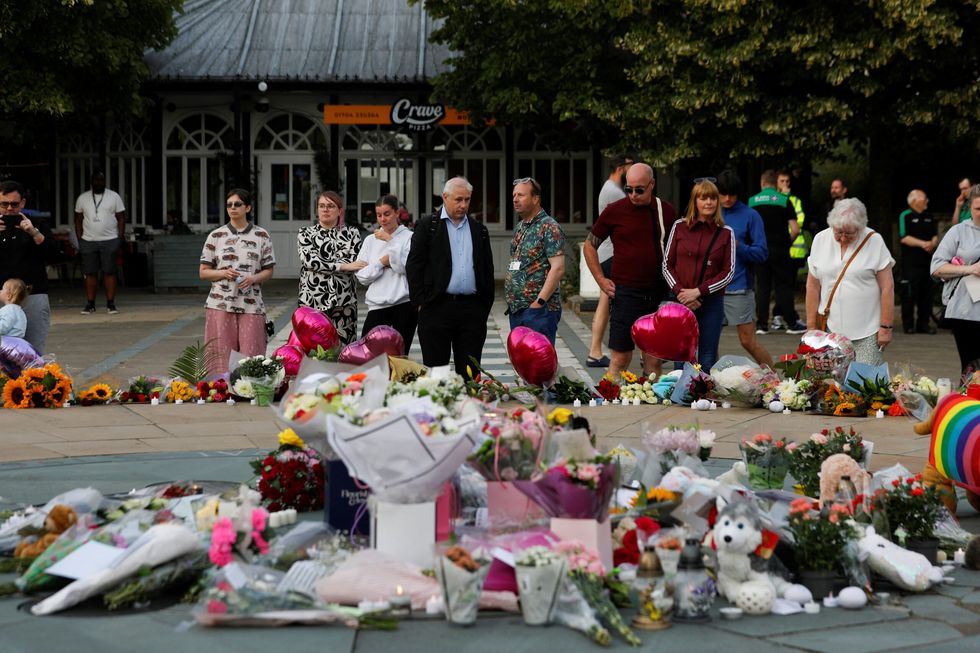TERRORISM watchdog has rejected calls to redefine terrorism following last summer's tragic Southport murders, while recommending a new offence to tackle those intent on mass killings without clear ideological motives.
Jonathan Hall KC, the Independent Reviewer of Terrorism Legislation, published his highly anticipated report on Thursday (13), concluding that the existing definition of terrorism should remain unchanged despite growing [concerns about violent attackers](https://www.easterneye.biz/teenager-sentenced-southport-stabbings/) with unclear motives.
The review was commissioned in January by Home Secretary Yvette Cooper to examine terror legislation "in light of modern threats we face" after prime minister Keir Starmer pledged to update legislation following the Southport killings.
Axel Radukabana, 18, stabbed to death three young girls and wounded 10 others last July in the northern English town of Southport.
Hall's report explicitly rejected broadening the definition of terrorism, which currently requires violence to be committed "to advance a political, religious, racial or ideological cause".
He warned that any expansion would risk "unintended consequences" including potential infringement on freedom of expression and misallocation of counter-terrorism resources.
"Treating every violent eccentric as a potential terrorist would skew the threat level and divert resources," Hall said in his report. "The risk of unintended consequences through rushed reform is extremely high."
The killer was later jailed for a minimum of 52 years but his actions were not classified as terrorism due to lack of evidence of ideological motivation.This classification decision proved controversial, particularly as Rudakubana was also convicted of possessing ricin and an al Qaeda training manual. The attack sparked days of nationwide rioting, fuelled by disinformation on social media.
 FILE PHOTO: Floral tributes are laid following a vigil for the victims of the knife attack in Southport, Britain July 30, 2024. REUTERS/Temilade Adelaja
While defending the decision not to classify Rudakubana as a terrorist, Hall acknowledged the emerging threat posed by what he termed "male loners, accessing violent material online, desperate for notoriety" and recommended a new approach to address this danger.
His report calls for the creation of a new criminal offence targeting individuals who plan to kill two or more people, regardless of motivation, with penalties including life imprisonment. This would close what Hall described as "a real and not theoretical gap" in existing law.
"It has become clear to me during the preparation of this report during January and February 2025 that there is a real and not theoretical gap for lone individuals who plan mass killing," Hall wrote. "No prosecution would be available if the police raided an address and found careful handwritten but uncommunicated plans for carrying out a massacre."
The report also stressed the need for police to learn from counter-terrorism practices in managing risks from violent individuals without clear ideological motivations. This includes developing "a bespoke policing response" drawing on counter-terrorism expertise in monitoring dangerous lone actors and distinguishing between "internet rhetoric and real-world attack planning".
Such an approach might have identified Rudakubana, who was flagged to the Prevent counter-terrorism programme three times but subsequently dropped due to lack of evidence of extremist ideology.
Hall also criticised the handling of public information following the Southport attack, adding that "near silence" from authorities is no longer viable in the age of social media. "The disinformation generated on social media, combined with widespread allegations of a 'cover-up', risked far more prejudice to any trial than the placement of undisputed facts about the attacker in the public domain," he noted.
A government spokesperson confirmed that legislation would be amended to "close the gaps identified" in the report and announced plans for a public inquiry into the Southport tragedy. The government will also examine Hall's observations regarding the challenges of tackling misinformation on social media following such incidents.
_(with inputs from Reuters)_